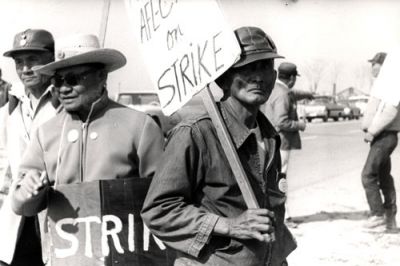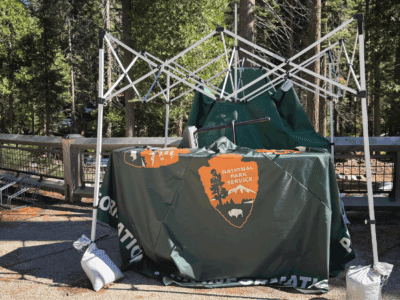Donald Rumsfeld’s Tips for Law Teachers
 Today in Land Use class, I had an abysmal time attempting to teach Avco v. South Coast Regional Comm’n, a 1976 California Supreme Court case that is crucial in understanding the “vested rights” doctrine. Avco holds that a developer has vested rights to develop only when 1) it relies on a permit; and 2) has undertaken substantial work in reliance on that permit.
Today in Land Use class, I had an abysmal time attempting to teach Avco v. South Coast Regional Comm’n, a 1976 California Supreme Court case that is crucial in understanding the “vested rights” doctrine. Avco holds that a developer has vested rights to develop only when 1) it relies on a permit; and 2) has undertaken substantial work in reliance on that permit.
Seems simple enough, right? Not really: in the case, the plaintiff had a vested right to keep doing the preparatory work for its subdivision because it had a permit to do so (and had invested $2 million in doing so), but did not have a vested right to build, because it didn’t have a building permit yet. I had a hard time making this clear to the students, and that where Donald Rumsfeld comes in.
Rumsfeld, of course, was subjected to widespread — and in my view, completely unwarranted and unfair — ridicule for his distinction between various levels of knowledge. Here is the statement, from his February 12, 2002 press conference, put in poetic form:
The Unknown
As we know,
There are known knowns.
There are things we know we know.
We also know
There are known unknowns.
That is to say
We know there are some things
We do not know.
But there are also unknown unknowns,
The ones we don’t know
We don’t know.
Very funny, at least in this presentation, but absolutely correct! And actually, quite a good way to say it.
So what does this have to do with law teaching? Law teachers, especially those who use some equivalent of the Socratic method, have to fill in the fourth category of knowledge, which Rumsfeld didn’t mention, in order to be effective. In other words, law teachers need to be aware of the unknown knowns, that is, those things that we know but that we do not know that we know!
That seems like a strange category, but it isn’t. Back to Avco: in order to understand the facts in that case, you have to know that developer first needs to get a permit to prepare the subdivision — the streets. water, sewer, infrastructure, open space, etc. — and then needs to get building permits to order to build the buildings, such as houses, apartments, commercial areas, etc.
And I knew that. But I didn’t really know that that was a specific piece of information that I knew! It was an unknown known. And because I didn’t know that I knew that, I didn’t explain it as clearly and precisely as I should have to the students. And so they didn’t understand the case as well as they could have, if I had been clearer.
So: there are known knowns, known unknowns, unknown unknowns, and unknown knowns. You could put it in a two-by-two matrix. This is about as close as I am ever going to get to the famous Rule Four developed simultaneously by Calabresi & Melamed, and in Spur Industries, Inc. v. Del E. Webb. But I think it is important for law teachers: make sure that you know what it is that you know, but your students don’t! It’s a way to make things clearer.
Got that?
And speaking of knowing…
[youtube http://www.youtube.com/watch?v=NHipzGL4dwM]
Reader Comments
4 Replies to “Donald Rumsfeld’s Tips for Law Teachers”
Comments are closed.







Sometimes the “unknown” can be artificially fabricated. As when a superior, through a process sometimes referred to as “plausible deniability,” seeks to dissociate him or herself from, and thus escape responsibility for, the misdeeds, if not crimes, of his or her subordinates in carrying out, either directly or indirectly, the policies of the superior. Ask Janis Karpinski (www.wikipedia.org/wiki/Janis_Karpinski) what she thinks of Rumsfeld’s epistemology.
Sometimes the “unknown” can be artificially fabricated. As when a superior, through a process sometimes referred to as “plausible deniability,” seeks to dissociate him or herself from, and thus escape responsibility for, the misdeeds, if not crimes, of his or her subordinates in carrying out, either directly or indirectly, the policies of the superior. Ask Janis Karpinski (www.wikipedia.org/wiki/Janis_Karpinski) what she thinks of Rumsfeld’s epistemology.
Abysmal may be too strong a word.. although my heart went out to the poor urban planning students without law training.
Abysmal may be too strong a word.. although my heart went out to the poor urban planning students without law training.